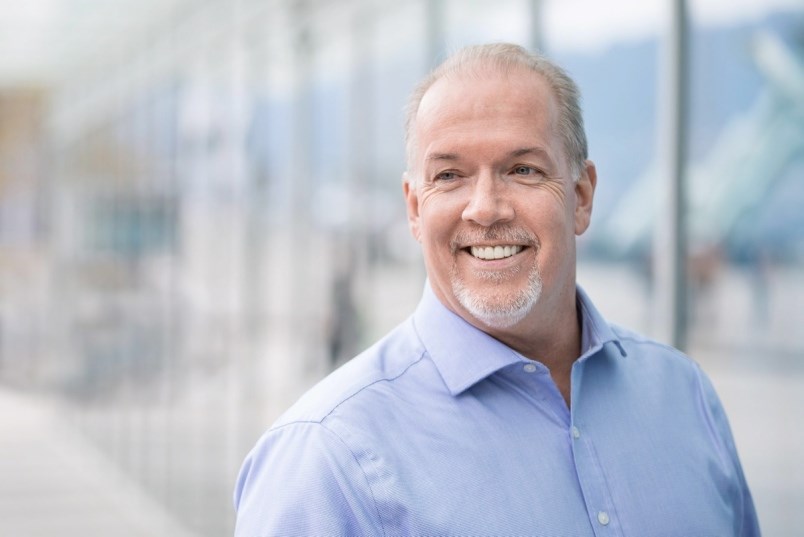One of the more notable feats in all of Canadian politics is the apparent entrenched popularity of B.C. Premier John Horgan.
The latest poll – from Mario Canseco’s Research Co. – pegs his approval rating at 69%, an astonishingly high level given that he has been premier for almost five years - plenty of time for any leader to accumulate all sorts of unwelcome baggage.
And goodness knows his NDP government has garnered its fair share of controversies over time. Despite its promise in the 2017 election campaign (and re-promised in the 2021 campaign) to solve the affordability riddle, it has largely failed to do so (mainly because of the pandemic and the continuing rise in housing prices).
The Research Co. poll also showed the NDP government is still enjoying significant public support (46% of decided voters, compared to just 38% for the BC Liberals) so Horgan profits from that. But his popularity vastly exceeds that of his own party (similarly, an Angus Reid poll last month gave him an approval rating of 54%, still in majority territory).
Why does Horgan enjoy this sustained high level of support? I think a big factor has been his decision to stay in the background as much as possible and allow his cabinet team – notably Health Minister Adrian Dix and Public Safety Minister Mike Farnworth – to take centre stage as often as possible.
It is a leadership style that is notably different from many of his fellow premiers, especially when contrasted with Alberta’s Jason Kenney and Ontario’s Doug Ford, both of whom are struggling with public opinion.
But Horgan and his government have also avoided a major pratfall that plunged the 1990s version of an NDP government into so much trouble almost immediately after taking office in 1991. That NDP government was very active with a highly ambitious legislative agenda, much of it fairly ideologically driven.
By contrast, the current version of an NDP government has tried to steer a path that sticks fairly close to the political centre. For sure, there are definite exceptions (such as the housing speculation tax, and the pro-union community benefits model for public infrastructure projects).
Horgan’s personality also plays a role. As I have noted here before, the John Horgan that occupies the premier’s office is decidedly different than the John Horgan who sat in the Opposition leader’s office.
The “angry John” persona has been replaced by a happy warrior that occasionally takes on a “Premier Dad” lecturing mode, which is usually more effective than not.
All of this is framed against his recent treatment for throat cancer, which no doubt has some thinking he may not seek re-election more than two years from now.
But I still see an energetic, enthusiastic politician who clearly enjoys the job of being premier. Having strived so long to attain that high office, I don’t see him walking away without asking the electorate for one more chance to keep the job.
Horgan will also surely want to best newly elected BC Liberal leader Kevin Falcon in a campaign, and his party knows he is their best hope when it comes to winning another mandate.
Whether he can maintain his high approval rating until then is another question. But so far, nothing has knocked him from that lofty perch.
Keith Baldrey is chief political reporter for Global BC.



